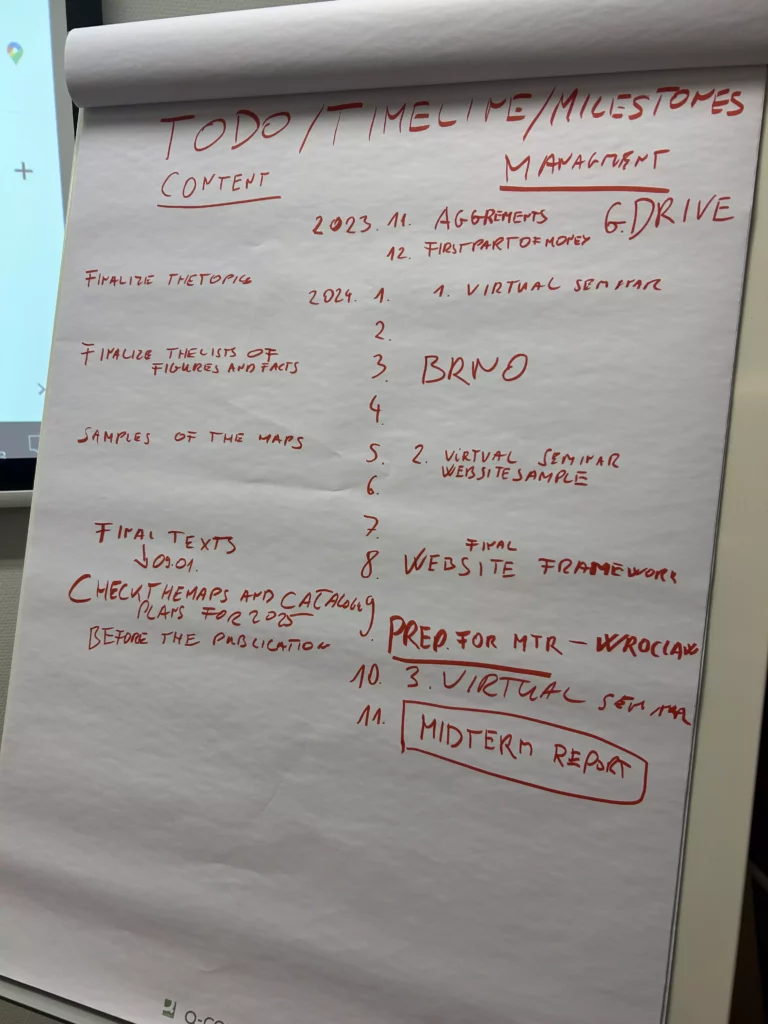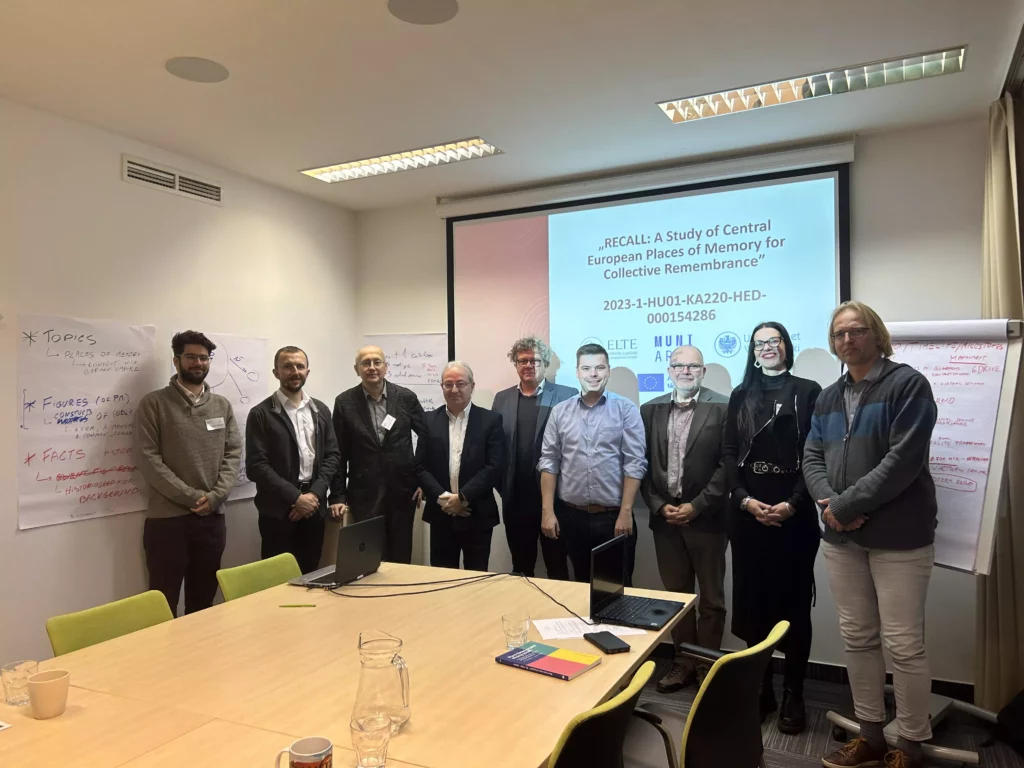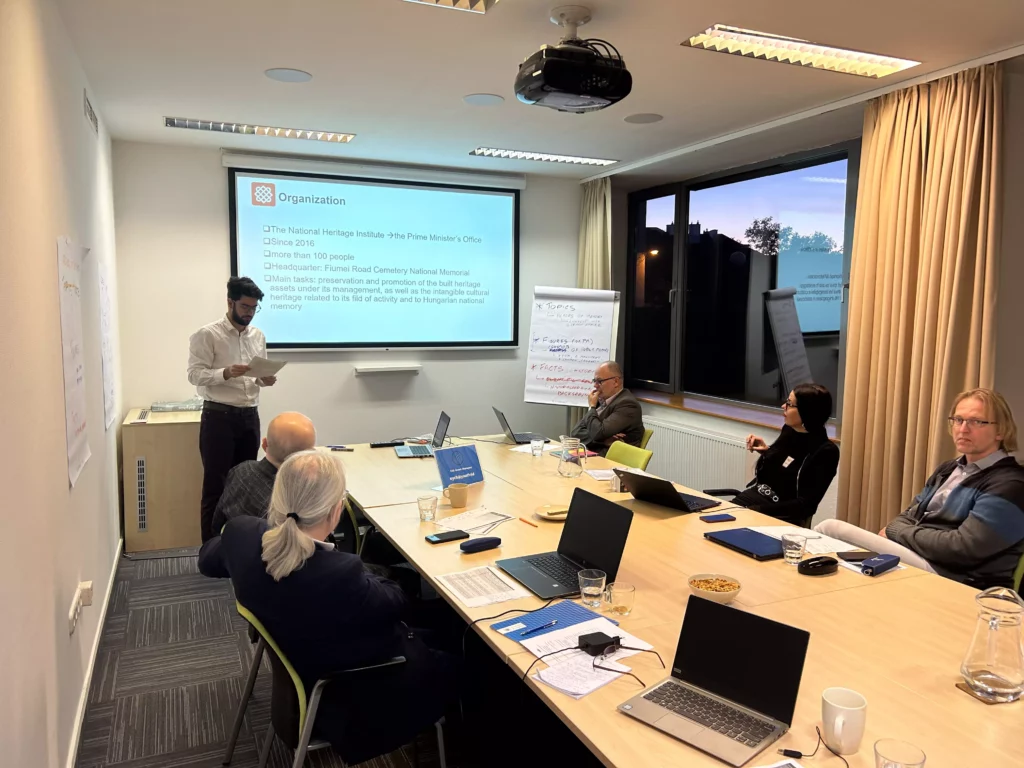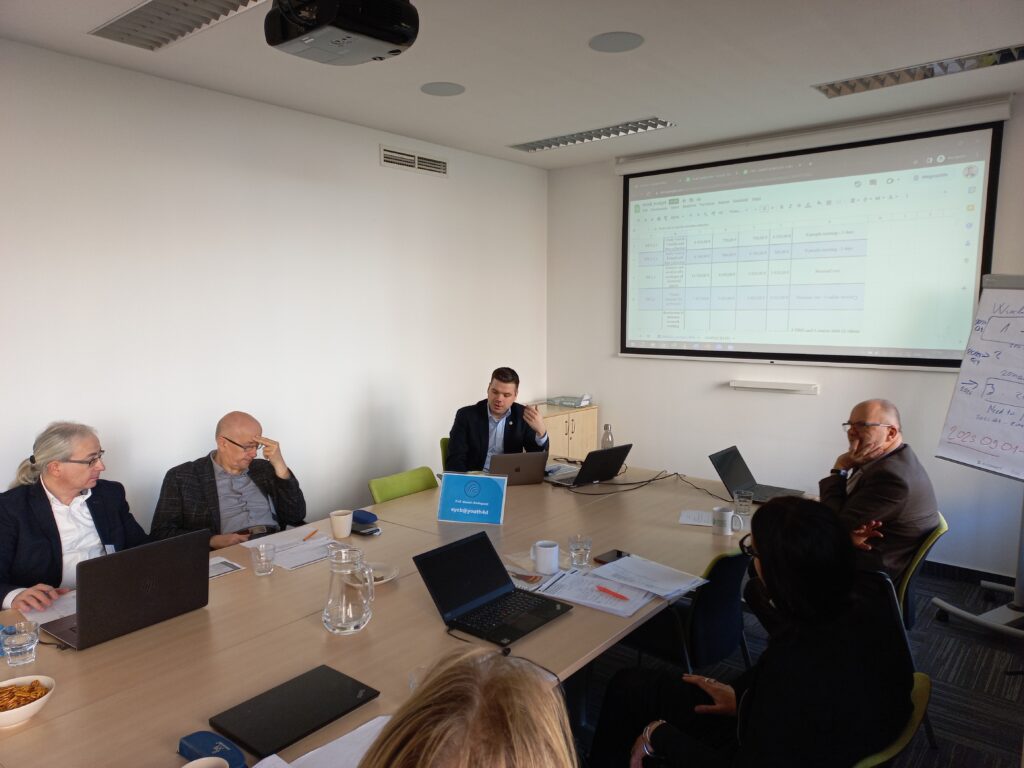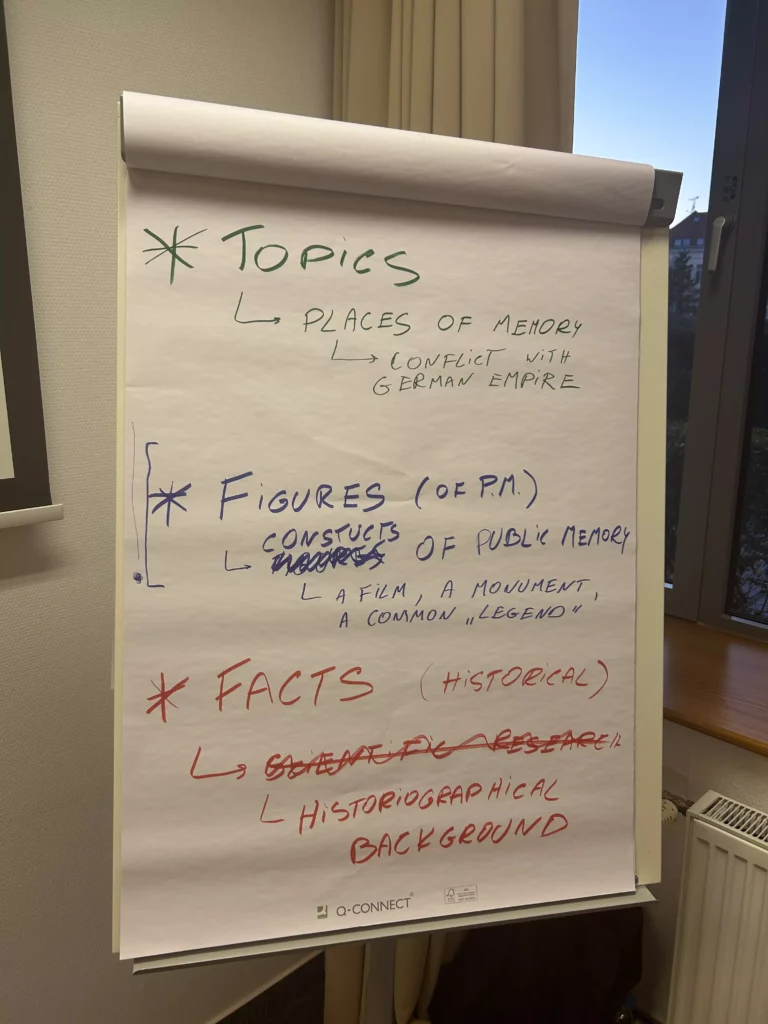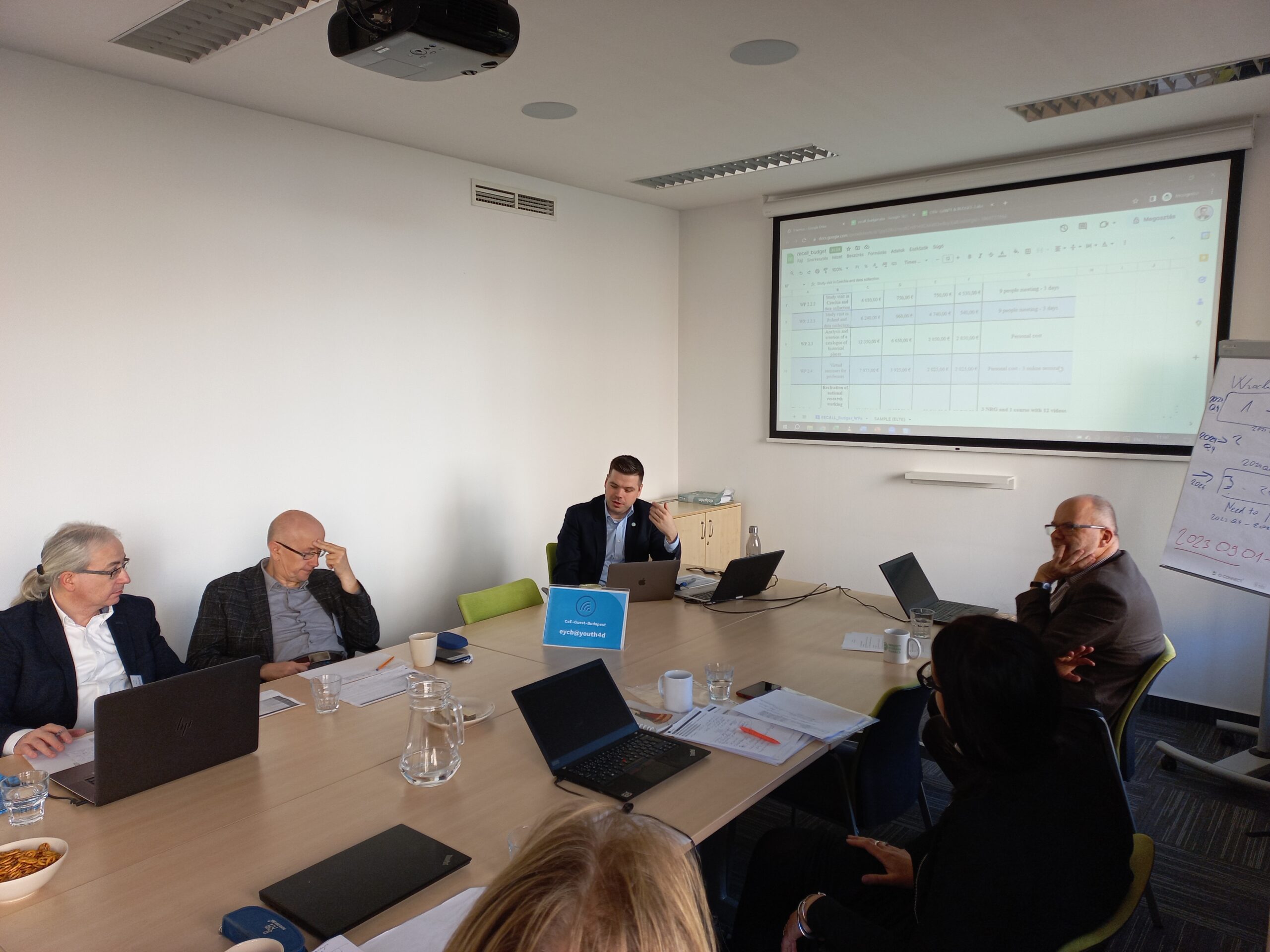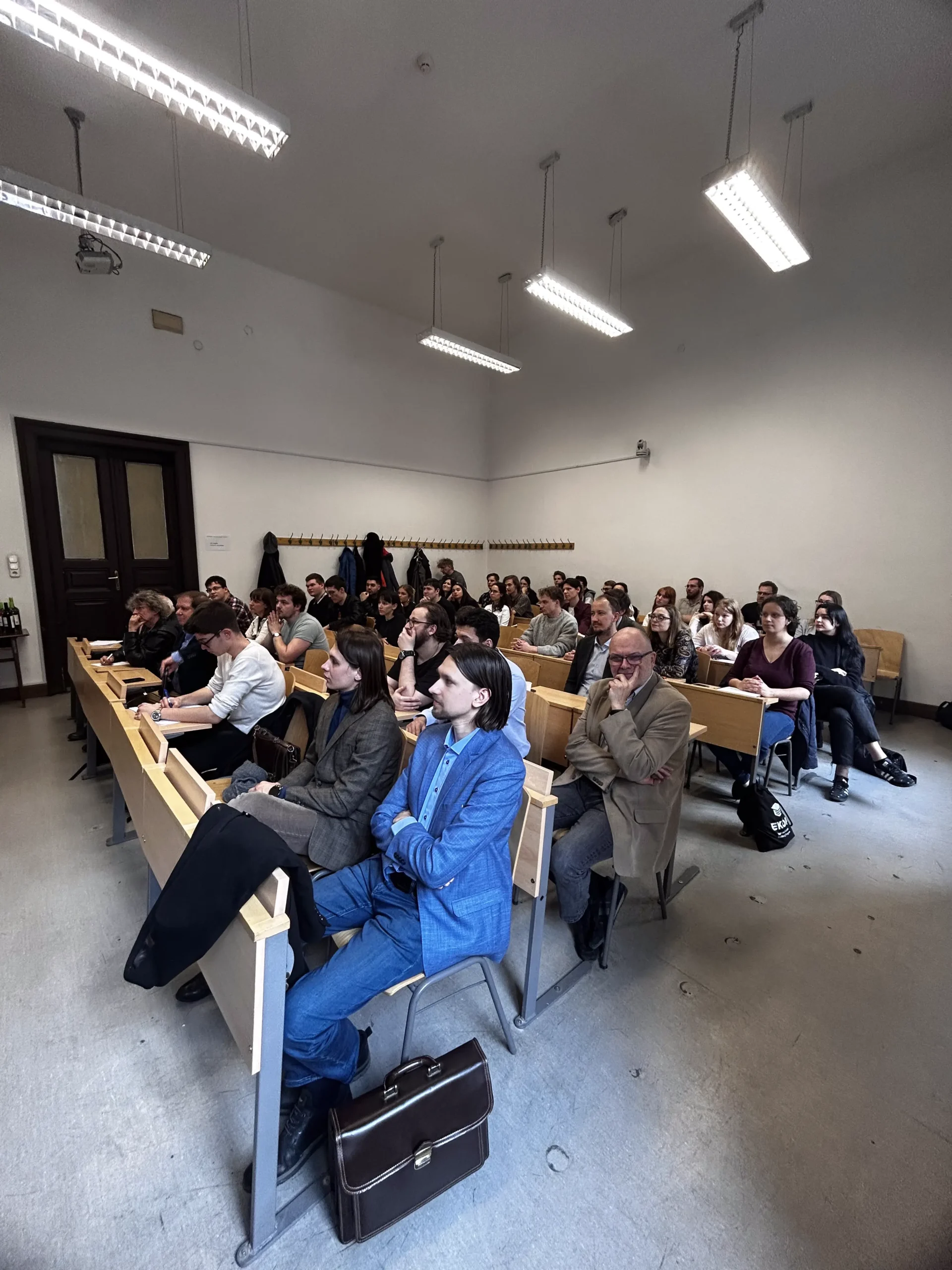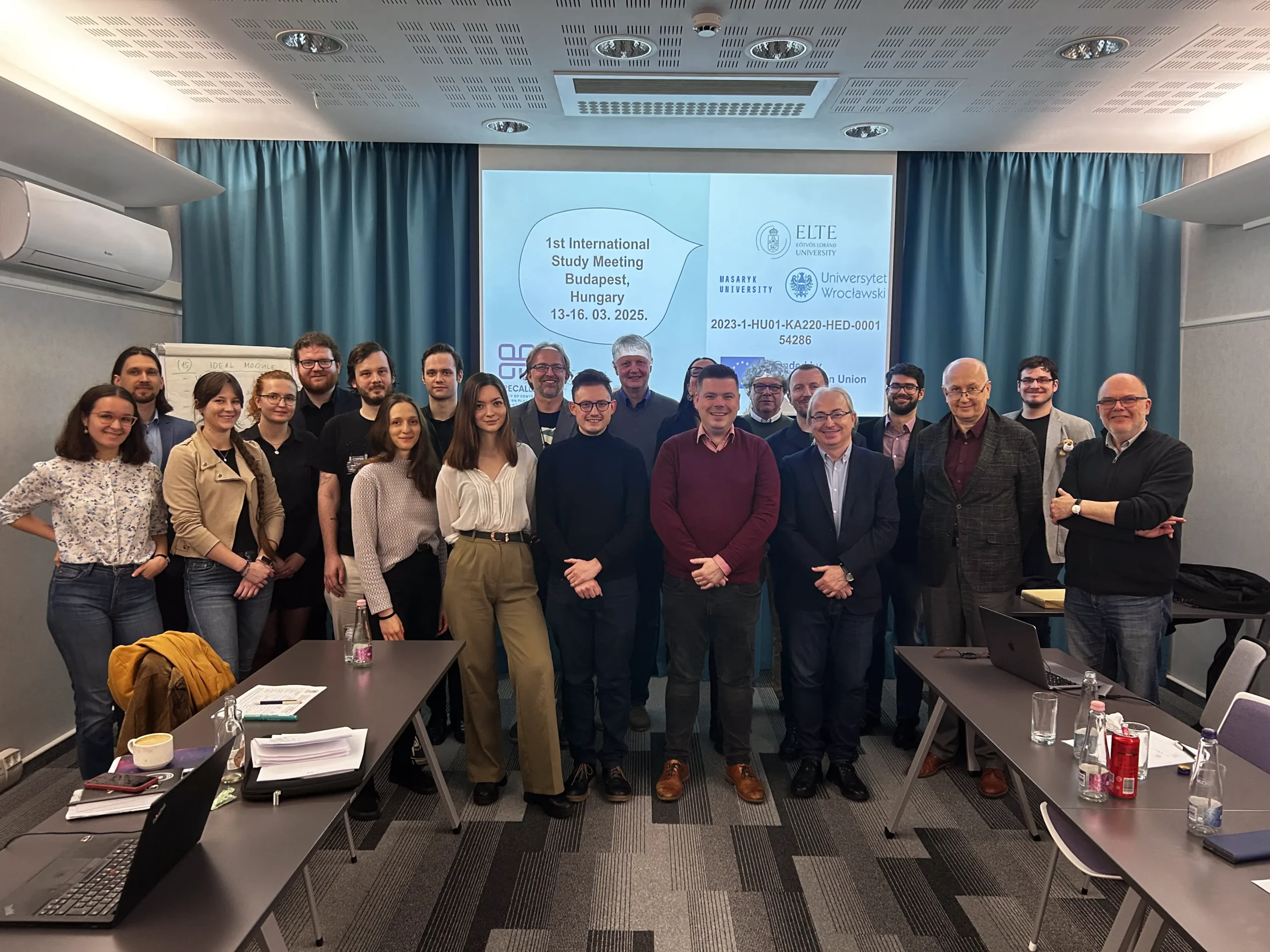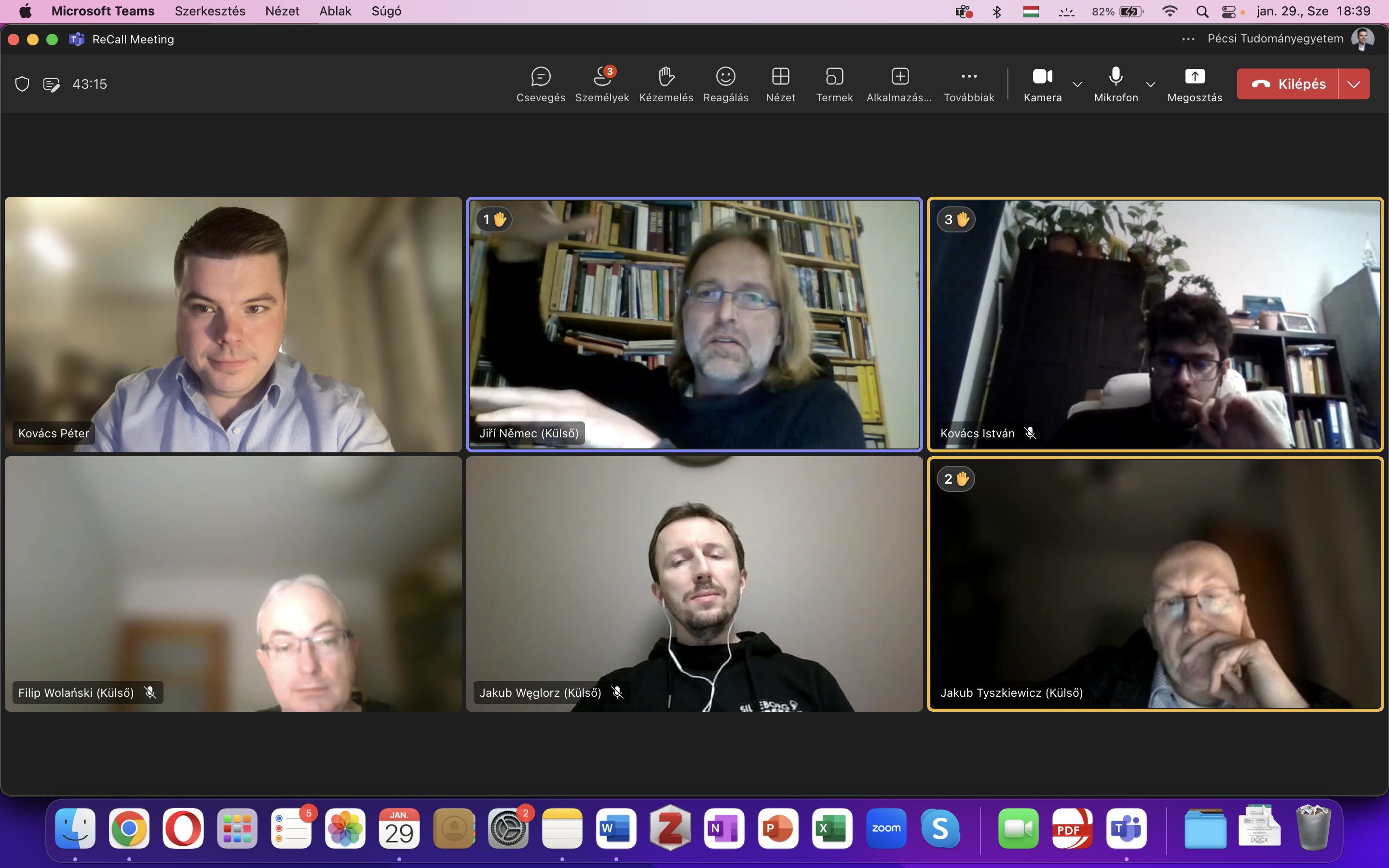In November 2023, the RECALL project team gathered in Budapest for a pivotal study visit and project meeting, with Buda Castle serving as the central focus. Known for its rich and complex history, from the Ottoman period to its role in modern national identity, Buda Castle provided an exemplary backdrop for the RECALL team to explore how layered historical narratives can be integrated into the project’s thematic maps.
This study visit was an essential part of the RECALL project’s mission to preserve and showcase shared Central European identity through memory sites, bringing together contributions from Hungary, Poland, and the Czech Republic.
On the first day, participants met at Buda Castle, collecting detailed photos and videos that highlighted its architectural evolution over the centuries. These materials will be crucial for the project’s visual mapping efforts, allowing users to explore the castle’s history in an engaging and interactive way.
Key agenda items included:
- Presentations from the Hungarian team on potential national sites for inclusion in the maps.
- Input from Czech and Polish colleagues on figures and facts relevant to their countries.
- Discussions on how to represent Buda Castle’s many layers of historical context, ensuring that users can access this complexity through the project’s digital platforms.
A significant outcome of the meeting was the decision to include figures like King Jagellonians and the Habsburgs in the project’s figures/facts database, as their legacies are deeply connected to Buda Castle.
The second day centered on expanding the project’s scope by exploring both physical and abstract places of memory. Morning sessions were dedicated to identifying and collecting potential physical memory sites, with valuable input from the National Institute of National Cultural Heritage. These discussions included proposals for new sites, the logistics of future excursions, and ways to tie these activities into webinars and conferences.
In the afternoon, the team shifted focus to more abstract memory sites, addressing thematic subjects and methodological approaches. The Polish, Czech, and Hungarian colleagues contributed proposals on how these intangible places of memory could be woven into the project’s broader narrative. The discussions aimed to align these elements with upcoming excursions, workshops, and meetings scheduled for 2024 and 2025.
By the conclusion of the visit, several key accomplishments were achieved:
- Inclusion of New Sites: The team finalized the inclusion of several national memory sites, adding new layers of complexity to the thematic maps.
- Visual Representation: A strategy was developed for visually representing historically complex sites like Buda Castle, making the maps more interactive and educational for users.
- Figures and Facts Database: Historical figures tied to Buda Castle, including King Jagellonians and the Habsburgs, were confirmed for inclusion in the project’s growing figures/facts database.
- Collaborative Framework: The visit solidified the project’s collaborative framework, ensuring that each national team’s contributions reflect a shared understanding of Central European history.
As with the earlier visits to Brno and Wroclaw, the Budapest study visit played a crucial role in advancing the RECALL project’s goals. Real-world explorations of these iconic sites, combined with academic presentations and collaborative discussions, continue to push the project forward.
The team will next prepare for further excursions and virtual seminars, including plans for activities in 2024 and 2025. These efforts will culminate in a comprehensive set of digital resources that highlight the intertwined histories of Central Europe, making these stories accessible to a broad audience.
